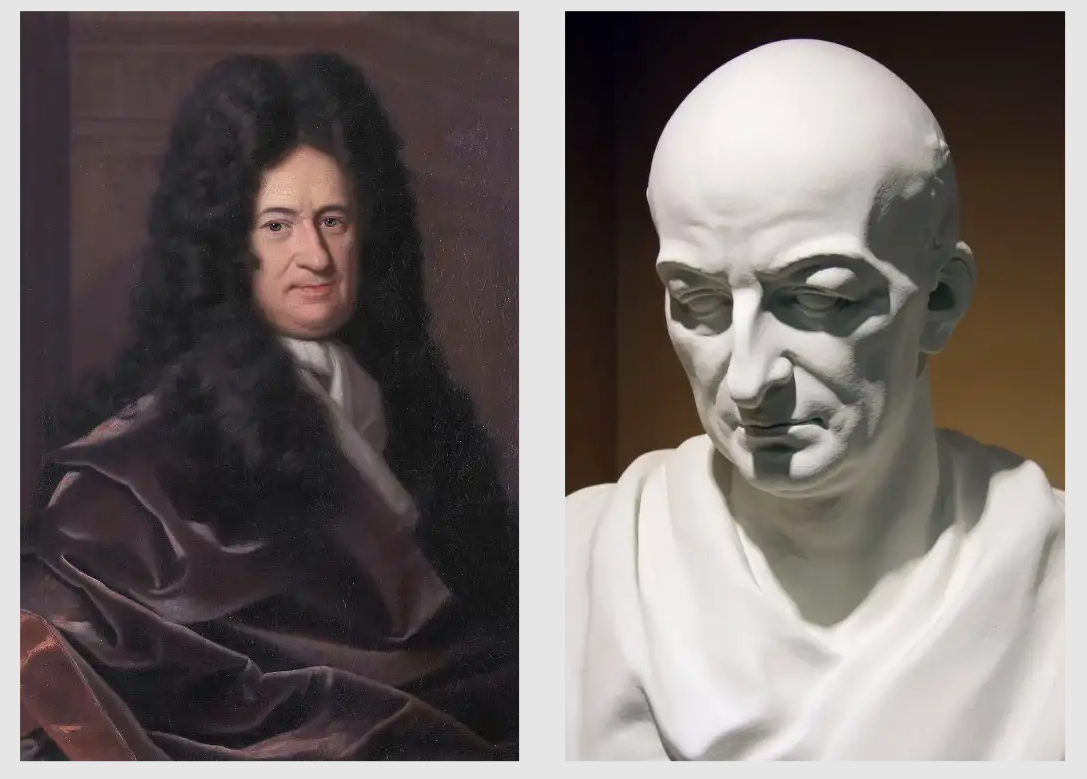
Figure: A portrait and a statue (without the wig) of Leibniz.

Gottfried Wilhelm Leibniz was described as a "most versatile genius." He wrote about mathematics, natural science, history, politics, law, economics, philosophy, theology, and philology. On July 1, 1646, at 6.45 p.m., he was born in Leipzig. His hometown was a Protestant city that had long been known as one of Germany's centres of learning and science since the Renaissance. Friedrich, his father, was Vice Chairman of the Philosophy Faculty and Professor of Moral Philosophy at the University of Leipzig. His father had been seeing signs of his son's bright future since he was a baby. For example, when he was two, he attempted to climb on a table but fell to the floor. His father was surprised to see that his son had not been injured and immediately sent a message to the church to observe the custom of a thanksgiving prayer following the service.
He preferred reading history, poetry, and literature as a child . By the age of twelve, he had mastered Latin and had begun to study Greek. To the surprise of his teacher and classmates, he not only applied Aristotelian logic to practical problems, but he also pointed out Aristotelian logic's flaws. He earned a Master of Philosophy degree in 1664 . He received his doctorate in law in 1666, when he was only twenty-one years old . At the same time, he declined the professorship offer because he believed that university life could not facilitate scientific reform and advancement of science.
He offered his services to noblemen, statesmen, and members of royal families, believing that they possessed the power to reform the country. However, it was his destiny to be a tool for his masters rather than free to roam . As part of his duties as Elector of Mainz, he travelled extensively through England, France, Germany, Italy, Poland, and other countries. During these journeys, he met or became acquainted with many prominent scholars of his time, including Huygens, Boole, Spinoza, and Newton, whose knowledge he greatly enriched. Finally, he relocated to Hannover and accepted positions as Counsellor and Librarian. In 1709, he was elevated to the rank of Baron of the Empire. He joined the organisation.In 1673, he was elected to the Royal Society of London, and in 1700, he was elected to the Akademie des Sciences. In 1700, he established the Akademie der Wissenschaften and became its president for life.
On Saturday, November 14th, 1716, at 10 p.m., Leibniz died peacefully at the age of 70.